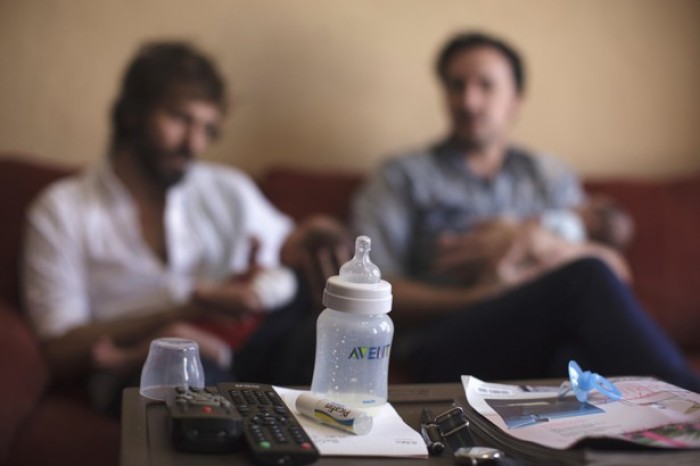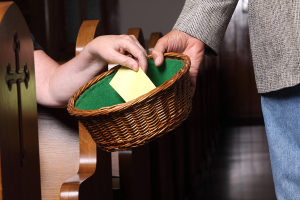Evangelical foster agency can’t ban gay and lesbian applicants, UK judge rules

A judge in England ruled Tuesday that an evangelical Christian adoption and foster care charity can’t refuse to place children in the home of same-sex couples while it works in coordination with government authorities but can require prospective carers to be evangelical.
In his judgment, Justice Julian Knowles of the England and Wales High Court contended that while the Equality Act of 2010 has an exception that allows religious groups to impose restrictions related to sexual orientation, such an exception does not apply to Cornerstone (North East) Adoption and Fostering Service based in Sunderland.
Knowles ruled that Cornerstone, which began in 1999 and filed a lawsuit earlier this year against government regulators, can’t require prospective foster or adoption parents “to refrain from 'homosexual behavior.’”
Last year, regulators deemed Cornerstone’s policies of being discriminatory because of the organization requires that prospective adoptive and foster parents be evangelical Christians who abide by the charity’s statement of faith.
The United Kingdom Office for Standards in Education, Children's Services and Skills opposed Cornerstone’s policies relating to a code of conduct that includes beliefs on marriage being between one man and one woman. Cornerstone accused Ofsted’s inspection report of demanding that the agency abandon its religious ethos.
Although Knowles ruled that Cornerstone can hold a policy requiring recruiting applicants to be evangelical Christians, Knowles also ruled that Cornerstone may not legally require potential carers to abide by the organization’s beliefs on sexual conduct.
Knowles explained that the exception in the Equality Act of 2010 that permits religious groups to impose restrictions related to sexual orientation does not apply to Cornerstone because it recruits carers on behalf of and under contract with local government authorities.
The judge ruled that Cornerstone's recruitment policy violates Article 14 read with Article 8 of the European Convention on Human Rights because it “requires carer applicants to be heterosexual.”
“The policy unlawfully discriminates, directly or indirectly, against gay men and lesbians,” Knowles wrote in his judgment. “The disapplication of the general exemption in [the Equality Act] applies because Cornerstone performs functions on behalf of public authorities pursuant to contract.”
Knowles argued that Cornerstone “failed to show by convincing evidence that its policy benefits children and young people in a way it would not if the policy did not discriminate.”
“But conduct which is discriminatory on the grounds of sexual orientation that is pursued because of religious belief is not thereby justified,” Knowles wrote.
According to the Christian Institute, lawyers involved in the case “dispute” Knowles’ reasoning and are considering filing an appeal.
In a statement, Cornerstone Chairwoman Sheila Bamber said that she is saddened that Cornerstone’s belief in a “biblically-based Christian marriage” has “not been recognized.”
“We will carefully and prayerfully consider how to continue our vocation and work to create forever families,” Bamber stated.
Christian Institute Deputy Director for Public Affairs Simon Calvert argued that the judge is “mistaken” to treat Cornerstone as an organization that recruits “on behalf of” the government.
“Cornerstone is a private organisation and places children with those within its existing pool of carers. It does not recruit carers on behalf of local authorities,” Calvert argued. “This part of the judgment suggests the court failed to recognise that Christian belief informs and shapes every area of life — including sexual ethics and behaviour.”
Calvert said that while the judge’s ruling prevents the organization from enforcing beliefs on sexuality, he stressed that the ruling effectively puts “beyond doubt” that the charity can continue to recruit only evangelical Christian carers.
Knowles stated in his ruling that Cornerstone’s recruitment policy that requires that applicants be evangelical Christians does not violate Article 14 and Article 8 of the European Convention on Human Rights.
“Cornerstone is permitted to exclusively recruit evangelical Christian carers because of the exemption [the Equality Act] for religious organisations,” Knowles wrote.
According to Calvert, Cornerstone is the only independent foster agency in England out of at least 305 agencies that has an “evangelical Christian ethos.”
“[The ruling] should help protect churches and other religious bodies that rely for their existence on the protections afforded by the Equality Act,” Calvert explained.
Amanda Spielman, Ofsted’s chief inspector, told BBC that she was pleased with the outcome of the ruling, suggesting that it "offers much needed clarity in what is a difficult, complex area of law.”
In the United States, Christian foster and adoption agencies have also had to deal with opposition to their policies relating to the placement of children with same-sex parents. In some cases, opposition at the state and local levels has pressured some Christian charities to halt their foster and adoption care services.
In its next term, the U.S. Supreme Court will hear a case brought on behalf of a Catholic foster care parents who sued the city of Philadelphia for no longer placing children with Catholic Social Services over its policies on same-sex households.
Follow Samuel Smith on Twitter: @IamSamSmith
or Facebook: SamuelSmithCP




























